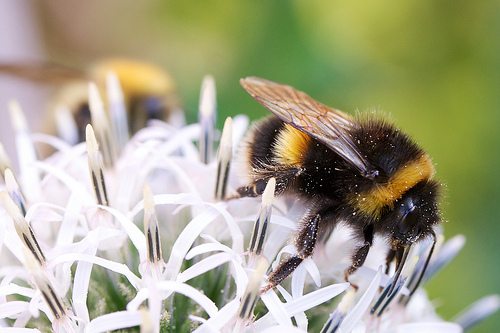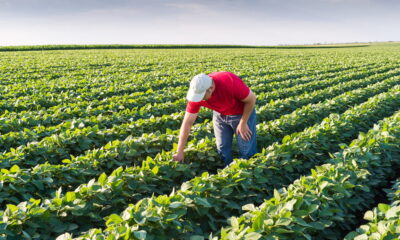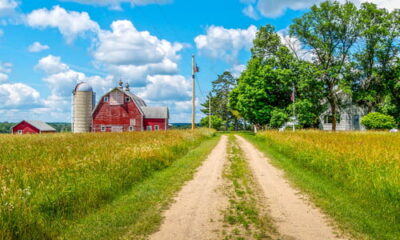

Environment
Yorkshire egg producer partners with conservation charity to end bee decline
A North Yorkshire-based egg producer has joined forces with a leading bumblebee charity in an effort to make its farm more bee-friendly and prevent further population decline of the species.
Chippindale Foods, which is based in Flaxby near Harrogate and supplies some 3.5m eggs a week to UK retailers, has unveiled a partnership with the Bumblebee Conservation Trust (BBCT) – a charity that looks to conserve bumblebees and their natural habitats.
The Yorkshire Post reports that the initial plan was to make Chippindale farms more attractive environments for bees to visit. It adds that two East Yorkshire-based suppliers had expressed an interest in following suit.
“We have an ideal opportunity with our free range egg farmers to help increase bumblebee populations by planting large areas of wildflowers on the range”, said Nick Chippindale, managing director of Chippindale Foods.
“We are really buzzing with excitement to be working with the BBCT and look forward to evolving our ‘bee-friendly farms’ with the expert knowledge and passion of the Bumblebee Conservation Trust.”
Many of Britain’s wild bees are in serious decline, including the large mason bee and the great yellow bumblebee, according to a report published in May by the University of Reading.
One of the causes of the population decrease is the increased use of certain streams of pesticides. In January this year, the European Food Standards Agency (EFSA) picked out a number of dangerous risks to bees posed by a trio of common insecticides.
Based on the evidence, EU member nations voted to ban three neonicotinoid pesticides in April, with the ruling set to come in place in December. A fourth chemical, fipronil, will also be banned.
Lucy Rothstein, the BBCT’s chief executive, said, “This unique partnership [with Chippindale Foods] will provide a host of benefits once the wildflower areas are established: bumblebees will have access to the pollen and nectar that they need from the wildflowers; farmers will notice more bumblebees and other wild pollinators which could increase yields of pollinated crops; hens will have access to more tasty invertebrate snacks; and communities will enjoy seeing these beautiful wildflower strips adding colour to their local countryside.”
The pollination services provided for free by the bees is said to be worth at least £26 billion to the global economy, meaning conservation of the species is financially – as well as environmentally – important.
Further reading:
British bees on the brink of extinction
Study claims UK bees are at risk from European imports
‘Victory for conservation’ as once extinct bumblebee returns to UK
EU votes to impose landmark pesticide ban to save bees
Bee protection ‘essential’ after scientists link decline in numbers with insecticides


 Environment12 months ago
Environment12 months agoAre Polymer Banknotes: an Eco-Friendly Trend or a Groundswell?

 Features11 months ago
Features11 months agoEco-Friendly Cryptocurrencies: Sustainable Investment Choices

 Features12 months ago
Features12 months agoEco-Friendly Crypto Traders Must Find the Right Exchange

 Energy11 months ago
Energy11 months agoThe Growing Role of Solar Panels in Ireland’s Energy Future





























